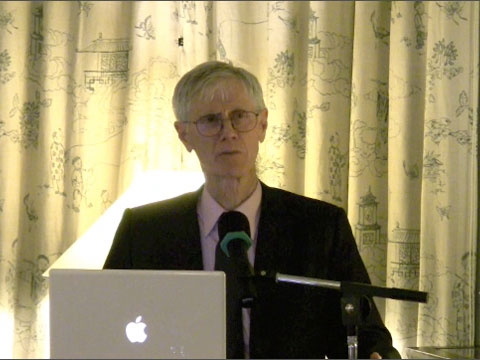'Climate Change Doesn't Negotiate'

HONG KONG, February 10, 2010 - The US and China must work in tandem in order to reach a meaningful agreement on climate change, observed Orville Schell, Director of the Asia Society's Center on US-China Relations. Speaking at the Asia Society Hong Kong Center, he noted "how to navigate these very difficult waters in the months to come—to come to an agreement on climate change, et cetera—that, both governments are wrestling with."
Climate change mitigation cannot take place without the US and China, the world's largest emitters of greenhouse gases. Currently, coal provides about 50 percent of US energy needs and a staggering 80 percent of China's. "Unless we can solve the question of coal, there really is no remedy to climate change," noted Schell. "So if you look at it from that perspective, you begin to understand more why it is absolutely essential that US-China relations really work out, and why energy and climate change must become an essential collaborative piece of the Sino-US puzzle."
He explained, "Within my lifetime, I'd say I've never seen a period in relations between two countries where things changed so rapidly from a rather optimistic, sunny, hopeful prospect to a much darker, uncertain year. All this has happened within a few months."
Following the 2008 US presidential elections, Sino-US relations got off to a good start. However, a plethora of issues have since incensed Beijing, including: US President Barack Obama's meeting with the Dalai Lama; American arms sales to Taiwan; the hacking of Google in China; currency exchanges, protectionism, and relations with Iran.
Schell cautioned, "We are potentially tipping into an abyss where the hard work of last year may throw the rather friendly relations off course."
Ties between the superpowers are further complicated as the US comes to terms with diminished finances, power, and abilities. "America is a very difficult country to deal with right now. There isn't a government. You can forgive China for being confused, annoyed. They have to deal with Congress and they have to deal with Obama. It's like North and South—a civil war."
Beijing, said Schell, adheres strictly to the notion of hexin liyi, or "core interest," resulting in a rigid non-negotiable manner that could impact on bilateral relations. "It's a very dangerous notion, what it means is a whole relationship can be held hostage to one issue—to one problem which it will not negotiate on. How do you deal with that, particularly if weak like the Obama government is."
Despite their differences, Schell urged both sides to do more to tackle climate change. "Everything is connected to everything else. It's one great big snarl. We no longer have the option to opt out of the snarl. We must act jointly, we must learn to collaborate, even if we do disagree or despise each other. We must find a way to deal with it. If not, the consequences are dire."
Reported by Penny Tang, Asia Society Hong Kong Center